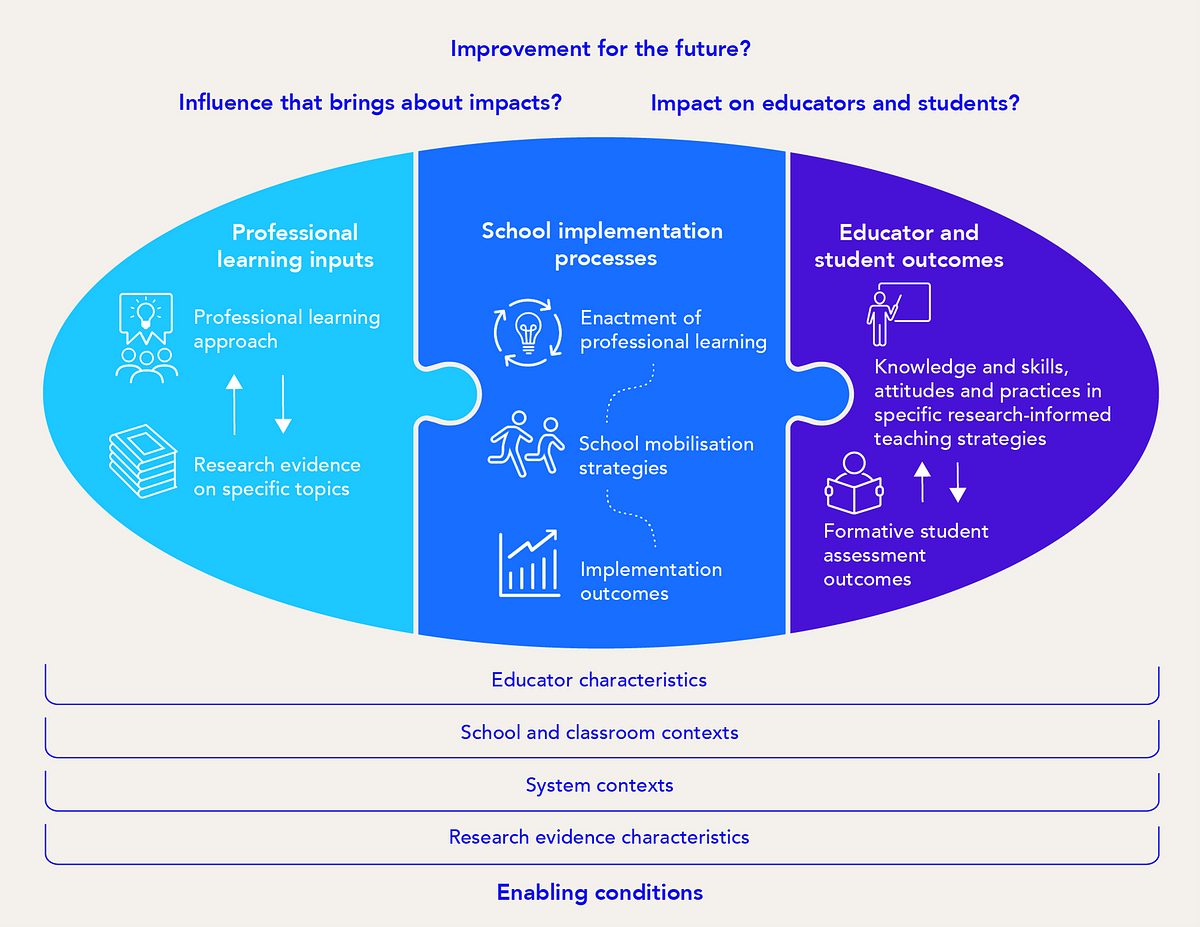Getting Evidence Moving in Schools (GEMS) was a three-year research investigation that aimed to improve both the way that research is used in Australian schools as well as the way schools’ use of evidence is researched.
The GEMS research investigation explored how schools mobilised literacy and numeracy research through professional learning providers. With a focus on Australian primary schools, the research examined what factors help and hinder schools in accessing and implementing rigorous research evidence.
Details about the project and partners are described here.
The key research question for GEMS was: How is research evidence mobilised in schools that work with professional learning providers?
The GEMS research investigation had three main aims:
- To examine the impact of research evidence mobilisation through professional learning on educators’ knowledge, attitudes and practices around using evidence and evidence-informed practices.
- To explore the influence of different layers in this mobilisation process (i.e. the research evidence, professional learning approaches, school mobilisation processes, educator characteristics and school- and system-level factors).
- To identify ways to improve the effectiveness of the research evidence mobilisation process in light of these influences, with a view to identifying enabling conditions that can support future work in this area.
The research investigation used a mixed-method research design which involved sequential collection and analysis of quantitative and qualitative data, beginning with quantitative data, for the primary purpose of confirmation/hypothesis testing. The observational research study design — literally observing how evidence was mobilised — allowed the research team to take a snapshot of schools and the way educators used evidence at a point in time across different professional learning providers.
Twenty-four primary schools and three professional learning providers in New South Wales and Victoria participated in the research investigation.
The diagram below – an extract from the GEMS Research Framework – reflects the key elements investigated as part of the project.

Key insights from the GEMS projects were:
- Evidence mobilisation is a deliberate and complex endeavour involving multiple stages and multiple actors.
- Professional learning providers played various roles in supporting schools, and educators valued the support of providers.
- Evidence mobilisation is (still) active, social and demanding for educators when professional learning providers are involved.
- Evidence mobilisation was both superficial and deep, and supportive school structures and environments were a key part of deeper mobilisation.
- Educators’ self-reports and positive attitudes masked experienced difficulties.
- While some measurable changes in educator outcomes occurred quickly, most changes take time and are difficult to sustain
- Evidence mobilisation enablers and barriers are largely known and predictable.
- Gaps exist between the evidence educators seek and the evidence available.
Following preparation of the GEMS Investigation Paper, Centre for Evidence and Implementation spoke again with the three professional learning providers involved in the study (Training 24/7, Teaching Sprints, and EdPartnerships International). Interviews took place in November/December 2020 — approximately one year after the main data collection for GEMS, and six months after providers had access to draft findings from the research investigation.
The purpose of these discussions was to explore the providers’ reflections and actions after the GEMS project, and any new insights they could offer in the changing COVID-19 context of 2020.
These reflections are captured in the GEMS Investigation Paper – 2020 Addendum.
The following papers associated with the GEMS research investigation are free to access and download for the E4L website.
- A Research Framework for understanding the different factors that are involved in mobilising research evidence in schools through professional learning
- An Investigation Paper to summarise the research investigation including the research protocol, results, insights and implications
- An Insights Paper and two reflection tools (reflecting on research evidence use and embedding research evidence use) to capture and convey the project’s lessons on the meaningful use of research evidence in schools.